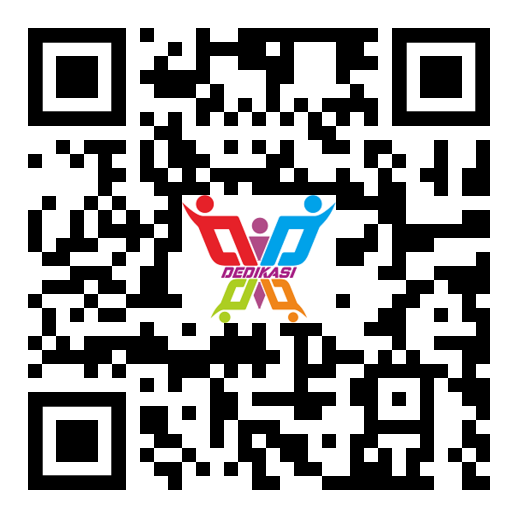Pemanfaatan Virtual Music Instruments sebagai Media Pengembangan Bahan Ajar pada Guru Musik SMA di Kota Bandung
Abstract
Kegiatan ini bertujuan untuk meningkatkan keterampilan guru musik SMA dalam memanfaatkan teknologi digital, khususnya instrumen musik virtual, guna menciptakan bahan ajar yang interaktif dan relevan. Dalam era digital, teknologi musik memberikan peluang baru bagi guru untuk mengadaptasi gaya belajar siswa Generasi Z yang cenderung visual dan berbasis teknologi. Program ini meliputi serangkaian tahap, yaitu persiapan, pelaksanaan, dan evaluasi. Pada tahap pelaksanaan, para guru mengikuti pelatihan yang mencakup teori dan praktik penggunaan virtual music instruments serta pembuatannya sebagai produk bahan ajar. Evaluasi dilakukan melalui observasi langsung dan kuesioner untuk menilai efektivitas program dalam mengembangkan keterampilan guru. Hasil kegiatan menunjukkan bahwa pemanfaatan teknologi dalam pendidikan musik dapat meningkatkan minat siswa sekaligus memperkaya metode pengajaran guru. Dengan adanya pendampingan lanjutan, diharapkan guru dapat terus mengembangkan bahan ajar kreatif yang mampu mendukung pembelajaran musik yang inovatif.
Keywords
Full Text:
PDFReferences
Baker, D. (2018). Digital music: A new era for music education. Music Educators Journal, 104(4), 24–29. https://doi.org/10.2307/3387304
Baker, S., & Grieg, J. (2020). The new era of music collaboration, opportunities and challenges in remote music creation. International Journal of Music Education, 38(3), 405–419.
Bauer, W. I. (2014). Music learning today, digital pedagogy for creating, performing, and responding to music. Oxford University Press. https://doi.org/10.1093/acprof:oso/9780199890590.001.0001
Campbell, P. S. (2018). Identity and music education, exploring the role of digital technology in student self-expression. Research Studies in Music Education, 40(1), 67–80.
Cipta, F. (2021). Digital audio workstation in music self-learning. In 3rd International Conference on Arts and Design Education (ICADE 2020) (pp. 208–212). Atlantis Press. https://doi.org/10.2991/assehr.k.210203.044
Cipta, F., Masunah, J., & Milyartini, R. (2023). Use of ICT as a music teaching material development tool. In Fifth International Conference on Arts and Design Education (ICADE 2022) (pp. 585–597). Atlantis Press. https://doi.org/10.2991/978-2-38476-100-5_74
Cipta, F., Sukmayadi, Y., Milyartini, R., & Hardini, T. I. (2024). Optimizing AI-powered music creation social media to amplify learning content. Jurnal Kependidikan, Jurnal Hasil Penelitian dan Kajian Kepustakaan di Bidang Pendidikan, Pengajaran dan Pembelajaran, 10(3), 881–892.
Cipta, F., Sukmayadi, Y., Milyartini, R., Kholid, D. M., & Gunara, S. (2024). Technological pedagogical and content knowledge (TPACK) integration in teaching music, a perception of high school music teacher. Jurnal Paedagogy, 11(2), 252–264. https://doi.org/10.33394/jp.v11i2.9624
Connor, A. M. (Ed.). (2016). Creative technologies for multidisciplinary applications. IGI Global. https://doi.org/10.4018/978-1-5225-0016-2
Dannenberg, R. B., & Masek, K. (2018). Remote collaboration in music creation, technology, process, and learning outcomes. Computers in Human Behavior, 89, 43–50.
Donnelly, D., & McNinch, G. (2019). The role of technology in music education, developing music literacy and creativity. International Journal of Music Education, 37(3), 427–440. https://doi.org/10.1177/0255761419842427
Ertmer, P. A., & Ottenbreit-Leftwich, A. T. (2010). Teacher technology change, how knowledge, confidence, beliefs, and culture intersect. Journal of Research on Technology in Education, 42(3), 255–284. https://doi.org/10.1080/15391523.2010.10782551
Hargreaves, D. J., & North, A. C. (2021). Improvisation in music education, the role of technology in fostering creative skills. Research Studies in Music Education, 43(1), 95–110.
Harris, J., & Hofer, M. (2009). Technological pedagogical content knowledge (TPACK) in action, the development and analysis of a framework for teacher knowledge. Computers & Education, 52(1), 1–13.
Harris, R., & Smith, J. (2016). The role of technology in enhancing music education, a case study. International Journal of Music Education, 34(1), 45–59.
Heiles, C. (2016). Exploring the intersection of music technology and music education, an analysis of the current landscape. Journal of Music Teacher Education, 25(3), 21–34.
Helsper, E. J., & Eynon, R. (2013). Digital natives, where is the evidence? British Educational Research Journal, 39(6), 1–17.
Hesmondhalgh, D. (2013). The cultural industries. Sage.
Hoffman, J. (2019). The impact of digital audio workstations on the creation of music, a case study of music production in the digital age. Journal of Music Technology and Education, 12(2), 125–136.
Hwang, G. J., Wu, P. H., & Chang, C. Y. (2018). A learning analytics approach to promoting students’ engagement in a digital music learning environment. Educational Technology & Society, 21(3), 87–101.
Kumar, V. (2019). Understanding Generation Z and its impact on education. Journal of Educational Technology Systems, 48(1), 27–45.
Lonsdale, S. (2019). Digital music production in education, exploring creative opportunities. International Journal of Music Education, 37(1), 112–127.
Mazzola, G., Park, J., & Thalmann, F. (2011). Musical creativity, strategies and tools in composition and improvisation. Springer. https://doi.org/10.1007/978-3-642-24517-6
O’Neill, M., & Bowers, A. (2018). Collaborative music creation in the cloud, perspectives from music educators and musicians. Journal of Music Technology and Education, 11(1), 1–15.
Peppler, K. A., & Glosson, D. (2013). The role of technology in the creative process, a music education perspective. International Journal of Music Education, 31(2), 184–200.
Prensky, M. (2001). Digital natives, digital immigrants. On the Horizon, 9(5), 1–6. https://doi.org/10.1108/10748120110424816
Repetto, J. B., Kirtman, B. P., & Richman, J. G. (2019). Music in the digital age, collaborative learning in higher education. International Journal of Music Education, 37(3), 367–377.
Schmidt, P., & Bauer, W. I. (2018). Teaching music with technology, a comprehensive guide. Routledge.
Seemiller, C., & Grace, M. (2016). Generation Z goes to college. Jossey-Bass.
Sweeney, E., & McCormick, J. (2020). Collaborative music creation, the role of digital tools in enhancing creativity and collaboration among students. Music Education Research, 22(4), 389–403.
Tschmuck, P. (2016). The economics of music, a study of music industry in the digital age. Springer. https://doi.org/10.2307/j.ctv5cg90z
Weller, M. (2019). Teaching in a digital age, how educators use technology to enhance learning. The International Review of Research in Open and Distributed Learning, 20(2), 1–10.
DOI: https://doi.org/10.20961/dedikasi.v7i2.99357
Refbacks
- There are currently no refbacks.
|







3.png)



1.png)




